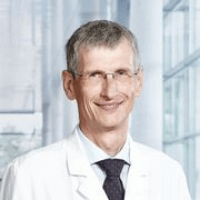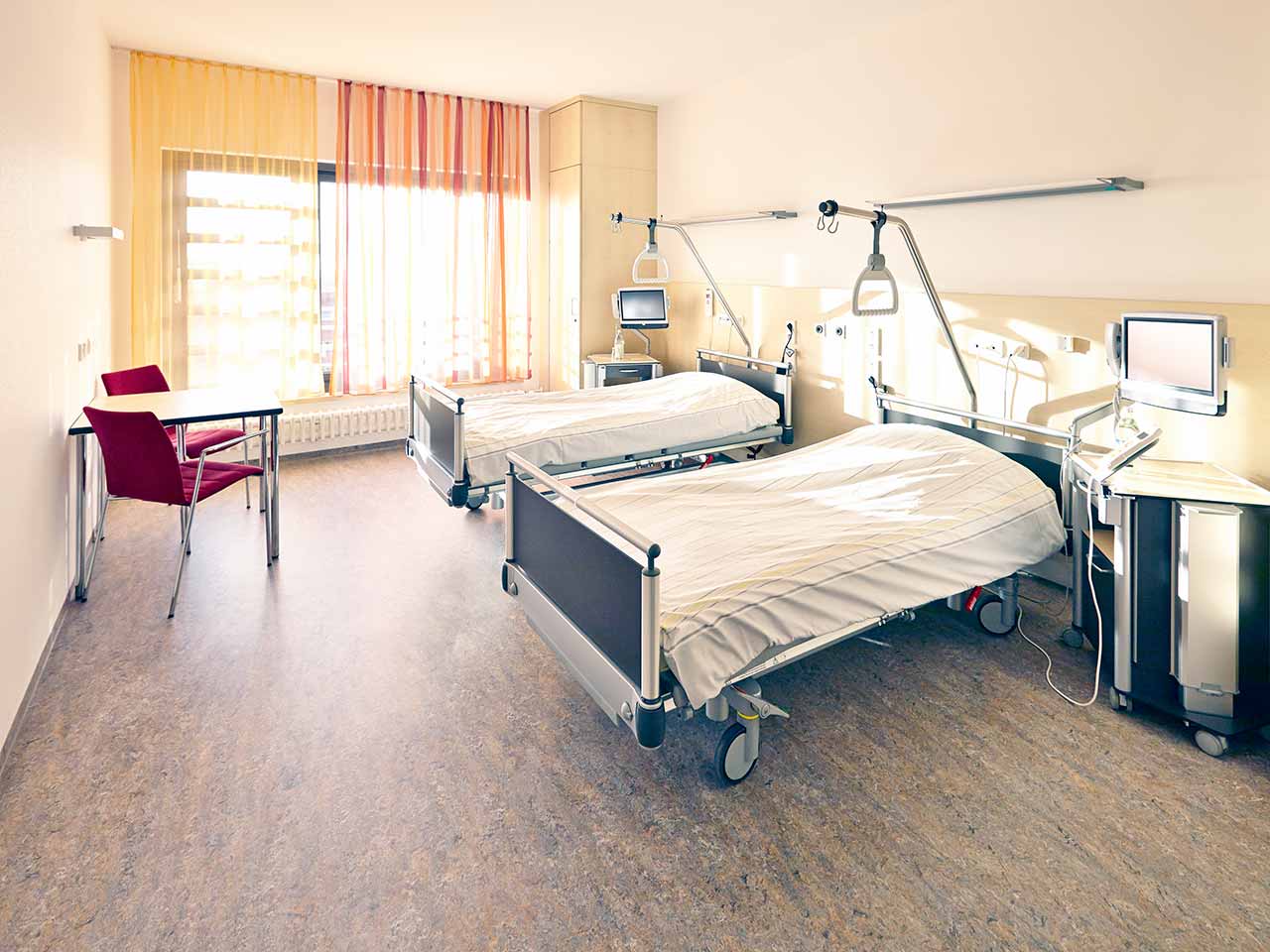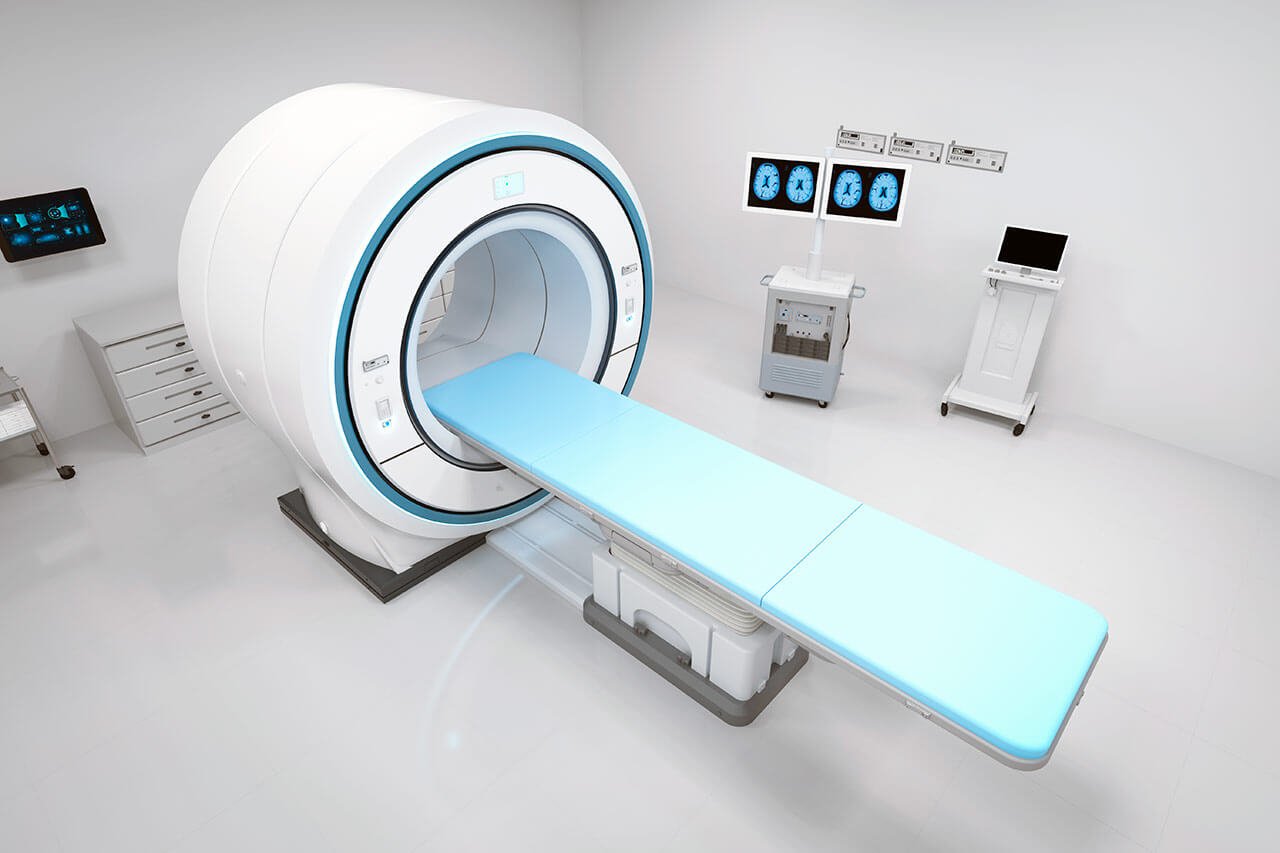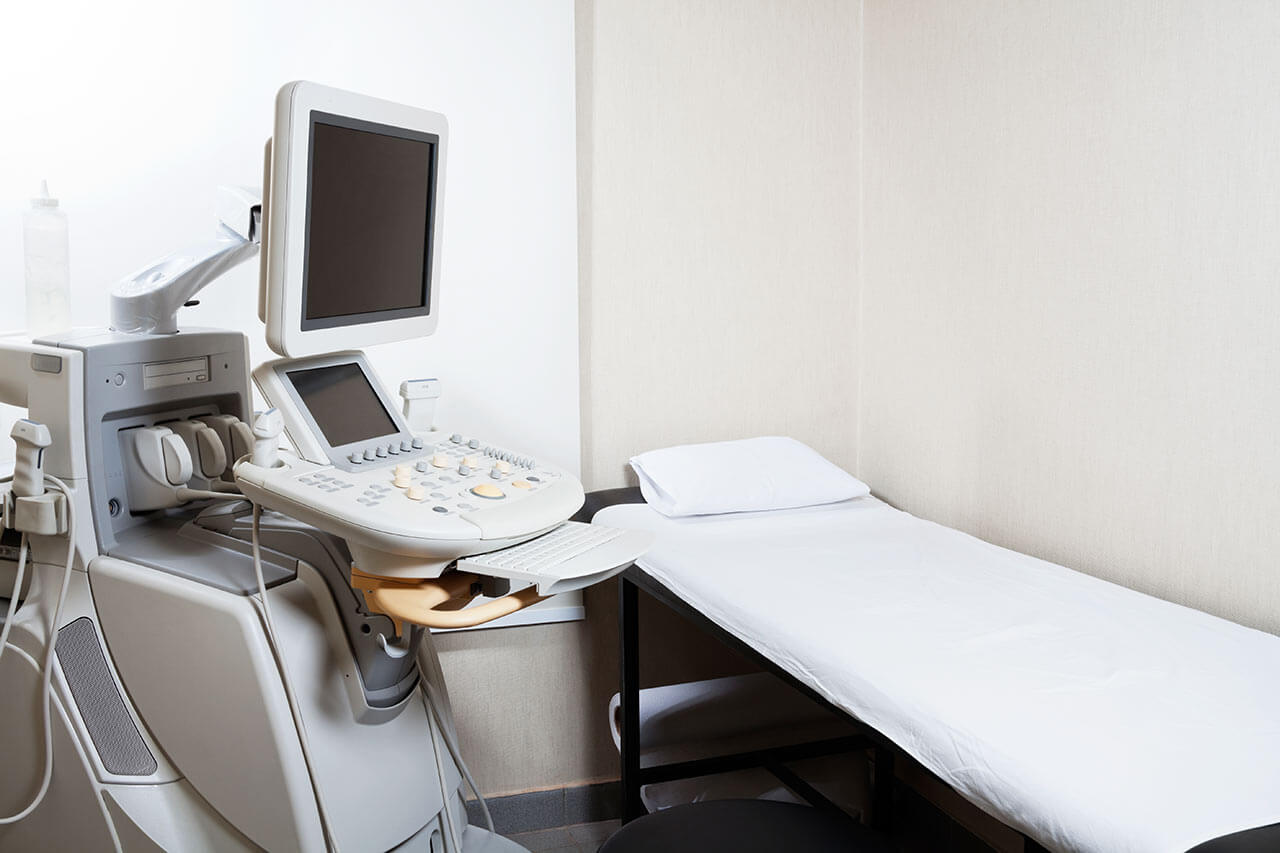
The program includes:
- Initial presentation in the clinic
- clinical history taking
- physical examination
- laboratory tests:
- complete blood count
- general urine analysis
- liver metabolism indicators (ALT, AST, gGT,
bilirubin detected (urine and blood), cholesterin) - hepatitis serology
- tumor markers (CEA, CA19-9, AFP)
- inflammation markers (CRP, ESR)
- blood coagulation analysis (aPTT, PT, INR)
- ultrasound of the abdomen
- liver fibroscan
- CT/MRI of the abdomen
- differential diagnostics with other liver diseases
- endosongraphy
- gastroscopy
- consultation of related specialists
- symptomatic specific treatment
- the cost of essential medicines and materials
- nursing services
- control examinations
- full hospital accommodation
- developing of further guidance
Required documents
- Medical records
- Abdominal ultrasound (if available)
- Abdominal MRI/CT scan (if available)
Service
You may also book:
 BookingHealth Price from:
BookingHealth Price from:
About the department
The Department of Gastroenterology and Hepatology at the University Hospital Ulm specializes in providing comprehensive medical care to patients with diseases of the gastrointestinal tract, liver, gallbladder, and bile ducts. One of the primary clinical focuses of the department's doctors is the diagnosis and treatment of gastrointestinal cancers. Cancer is treated at a specialized center, which is certified according to the standards of the German Cancer Society (DKG) in the treatment of colon, esophageal, pancreatic, and liver cancer. The department houses a modern Endoscopy Unit (ISO 9001:2000 certification), where doctors perform the full range of diagnostic and therapeutic procedures for stomach, colon, esophageal, gallbladder, bile duct, and liver pathologies. Moreover, there is a well-equipped Laboratory for Functional Diagnostics of the Gastrointestinal Tract and a Center for Ultrasound Diagnostics, where more than 25,000 ultrasound procedures are performed every year. The department provides patients with high-quality medical services using the very latest achievements of university medicine. At the same time, the key role is a humane attitude and understanding of the individual needs and wishes of each patient. The Head Physician of the department is Prof. Dr. med. Thomas Seufferlein.
The department's gastroenterologists, in collaboration with abdominal surgeons, oncologists, radiologists, radiation therapists, and other specialists, provide patients with effective treatment of gastrointestinal cancers using modern therapeutic methods. Doctors most often deal with colon cancer, which is the third most common cancer worldwide. Treatment tactics depend on the stage of cancer. Small tumors in their early stages are removed using endoscopic techniques (colonoscopy) or minimally invasive en bloc resections. The advanced stages of oncology require extensive surgery that involves the resection of the tumor along with a part of the intestine and other affected anatomical structures. A treatment regimen usually includes conservative methods such as chemotherapy, radiation therapy, targeted therapy, immunotherapy, etc. It is important for the department's doctors to provide patients with effective treatment tailored to their individual wishes and needs. Each clinical case is therefore considered during tumor boards, where specialists from related medical fields study the patient's diagnostic results and jointly determine which treatment will provide the best result.
The department has also accumulated vast clinical experience in the treatment of patients with Crohn's disease and ulcerative colitis. At the diagnostic stage, a patient with suspected chronic inflammatory bowel disease undergoes a complex of laboratory tests, imaging examinations (ultrasound, CT, MRI, or PET-CT), and colonoscopy. The first-line treatment for exacerbations of the inflammatory process in the intestine involves an individually prescribed drug therapy regimen, which includes the intake of biological drugs, steroids, aminosalicylates, and other medications. In some cases, infusion therapy with biological drugs may be required. If drug therapy fails, the department's gastroenterologists consider the option of endoscopic treatment. The last-line treatment is surgery, and abdominal surgeons are responsible for its performance.
In the field of hepatology, the focus of doctors is on the diagnostics and treatment of liver diseases. The specialists at the medical facility regularly admit patients with fatty liver disease, cirrhosis, hepatitis, drug-induced liver injury, alpha-1-antitrypsin deficiency, and other pathologies. In most cases, doctors manage to achieve recovery or sustained remission of the disease with the help of a properly selected drug therapy regimen. In some cases, an endoscopic procedure called transjugular intrahepatic portosystemic shunting may be performed to alleviate the condition of a patient with liver disease. This method is most often used to arrest bleeding caused by cirrhosis. The essence of the endoscopic manipulation lies in creating a vascular network to ensure the outflow of blood from the portal vein into the inferior vena cava, bypassing the affected liver tissue.
The department specializes in the diagnostics and treatment of the following diseases:
- Gastroenterology
- Malignant gastrointestinal diseases
- Colon cancer
- Stomach cancer
- Esophageal cancer
- Rectal cancer
- Pancreatic cancer
- Neuroendocrine gastrointestinal tumors
- Benign gastrointestinal diseases
- Stomach and colon polyps
- Stomach ulcers
- Chronic inflammatory bowel disease: Crohn's disease and ulcerative colitis
- Gastroesophageal reflux disease
- Gastrointestinal bleeding
- Pancreatitis
- Malignant gastrointestinal diseases
- Hepatology
- Malignant diseases of the liver, gallbladder, and bile ducts
- Liver cancer
- Gallbladder cancer
- Bile duct cancer
- Benign diseases of the liver, gallbladder, and bile ducts
- Cirrhosis
- Fatty liver disease
- Drug-induced liver injury
- Autoimmune liver diseases: autoimmune hepatitis, primary biliary cholangitis, and primary sclerosing cholangitis
- Storage diseases affecting the liver (for example, hemochromatosis and Wilson's disease)
- Alpha-1-antitrypsin deficiency
- Viral hepatitis (acute and chronic viral infections A, B, C, and D)
- Liver disease in pregnant women
- Liver lesions caused by rheumatic diseases
- Malignant diseases of the liver, gallbladder, and bile ducts
- Other diseases
The department's range of medical services includes the following:
- Diagnostic options
- Endoscopic examinations of the gastrointestinal tract
- Gastroscopy
- High-resolution video endoscopy
- Narrow-band imaging (NBI)
- Chromoendoscopy
- Endosonography and endosonography-guided puncture
- Capsule endoscopy
- Double-balloon enteroscopy
- Spiral endoscopy
- Rectosigmoidoscopy
- Proctoscopy
- Endoscopic retrograde cholangiopancreatography
- Cholangioscopy
- Ultrasound examinations of the gastrointestinal tract
- Ultrasound scanning of the upper gastrointestinal tract
- Elastography
- Ultrasound-guided punctures
- Ultrasonographic diagnostics of alveococcosis and echinococcosis
- Contrast-enhanced ultrasound scanning
- Functional gastrointestinal diagnostics
- Esophageal impedance monitoring
- 24-hour esophageal impedance pH monitoring
- Lactose hydrogen breath test
- Fructose hydrogen breath test
- Glucose hydrogen breath test
- Endoscopic examinations of the gastrointestinal tract
- Therapeutic options
- Balloon dilatation of stenotic gastrointestinal areas followed by stent implantation
- Endoscopic hemostasis
- Latex ligation and sclerotherapy for esophageal varices
- Endoscopic mucosal resection
- Endoscopic submucosal dissection
- Polypectomy
- Foreign body removal from the gastrointestinal organs
- Percutaneous endoscopic gastrostomy
- Ablation procedure for Barrett's esophagus (BarrX therapy)
- Argon plasma coagulation
- Laser therapy
- Papillotomy
- Lithotripsy for bile duct stones
- Bile and pancreatic duct drainage
- Transjugular intrahepatic portosystemic shunting
- Other diagnostic and treatment methods
Curriculum vitae
Higher Education
- 1982 - 1984 Medical studies, University of Regensburg.
- 1984 - 1989 Medical studies, Technical University of Munich.
- 1990 Admission to medical practice.
Professional Career
- 1989 - 1990 Military service as an Intern at the 612 Health Center in Munich and the Bundeswehr Institute for Pharmacology and Toxicology in Munich.
- 1990 - 1993 Research Fellow, Department of Endocrinology and Diabetology, Free University of Berlin.
- 1993 - 1995 Fellowship from the German Research Foundation (DFG), Internship at the Imperial Cancer Research Fund, Growth Regulation Laboratory, London, UK.
- 1995 - 1996 Fellowship from the Imperial Cancer Research Fund, Growth Regulation Laboratory, London, UK.
- 1996 Beginning of postgraduate training in Internal Medicine and Gastroenterology. Head of the Growth Control Laboratory at the Department of Gastroenterology and Hepatology, University Hospital Ulm.
- 17.10.2000 Board certification in Internal Medicine.
- 19.12.2000 Venia Legendi for Internal Medicine.
- 2001 Senior Physician, Department of Gastroenterology and Hepatology (specialization: endoscopy and gastrointestinal tumors), University Hospital Ulm.
- 01.03.2003 Board certification in Gastroenterology.
- 2004 Managing Senior Physician and Deputy Head Physician, Department of Gastroenterology and Hepatology, University Hospital Ulm.
- 2004 Completion of the distance learning course on Management of Health and Social Services, University of Kaiserslautern.
- 2005 Visiting Professor, University of Ulm.
- 2008 - 2012 Head Physician, Department of Gastroenterology and Pulmonology, University Hospital Halle (Saale).
- Since 01.05.2012 Head Physician, Department of Gastroenterology and Hepatology, University Hospital Ulm.
Positions in Professional Societies and Organizations
- Member of the Section for Colorectal and Pancreatic Cancer of the Working Group on Internal Oncology (AIO).
- Chair of the Educational Committee of the European Society of Digestive Oncology (ESDO).
- Chairman of the Certification Committee for Colorectal Cancer Centers of the German Cancer Society (DKG).
- Member of the Future Trends Committee of the United European Gastroenterology (UEG).
Photo of the doctor: (c) Universitätsklinikum Ulm
About hospital
The University Hospital Ulm is an advanced medical complex that provides patients with high-class medical care using the very latest scientific achievements. The medical facility has been performing successful clinical activities for more than 40 years and has long earned an excellent reputation throughout Europe. The hospital regularly demonstrates high treatment success rates, takes an active part in the training of medical students, and works tirelessly on promising research projects.
The university hospital consists of 29 specialized departments and 16 scientific institutes, where more than 7,000 highly qualified employees work for the benefit of their patients. More than 55,000 inpatients and about 300,000 outpatients are treated here every year. The hospital has 1,274 beds. The medical team of the hospital is focused on providing personalized medical services using the most modern and sparing diagnostic and treatment methods.
The University Hospital Ulm is the largest medical complex in the region, and practically all areas of modern medicine are represented here. Transplantology and oncology are among the priority areas of clinical activity in the medical facility. The hospital holds leading positions in the world in bone marrow transplantation. In addition, the hospital has advanced experience in cancer treatment. The Comprehensive Cancer Center is recognized as the leading facility of this kind in the country, and it is certified by the German Cancer Society (DKG). It provides effective treatment for various types of cancer. The center also offers innovative CAR T-cell therapy. In addition, the Cancer Center is actively engaged in research activities to improve available treatment methods and develop innovative therapeutic techniques to fight cancer.
Along with the use of advanced technologies, doctors show respect, understanding, and a humane attitude toward the patient. The medical team includes competent psychologists, who are always ready to provide assistance and support to the patients and their families during the therapeutic process.
Photo: (с) depositphotos
Accommodation in hospital
Patients rooms
The patients of the University Hospital Ulm live in comfortable single and double rooms with a modern design and light colors. All patient rooms have an ensuite bathroom with a toilet and a shower. The patient room furnishings include a comfortable automatically adjustable bed, a bedside table, a wardrobe, a table and chairs, a telephone, a radio, and a TV. Wi-Fi access is also available in patient rooms.
The hospital also offers enhanced-comfort rooms, which additionally have a safe, a refrigerator, and upholstered furniture. The bathroom in the enhanced-comfort room has changeable towels, a cosmetic mirror, a hairdryer, and toiletries.
Meals and Menus
Patients and their accompanying person are offered three meals a day: breakfast, lunch, and dinner. The patient and accompanying person have a choice of three menus every day, including a vegetarian menu. Patients staying in the enhanced-comfort rooms are also offered light snacks, fruits, desserts, and hot and cold drinks in the comfortable lounge area.
If, for some reason, you do not eat all the foods, you will be offered an individual menu. Please inform the medical staff about your dietary preferences prior to treatment.
Further details
Standard rooms include:
![]() Shower
Shower
![]() Toilet
Toilet
![]() Wi-Fi
Wi-Fi
![]() TV
TV
Religion
The hospital has a chapel where Catholic and Protestant services are held weekly. The services are also broadcast on the internal television channel of the hospital. The chapel is open 24 hours a day for visits and prayers.
The services of other religious representatives are available upon request.
Accompanying person
Your accompanying person may stay with you in your patient room or at the hotel of your choice during the inpatient program.
Hotel
You may stay at the hotel of your choice during the outpatient program. Our managers will support you for selecting the best option.






